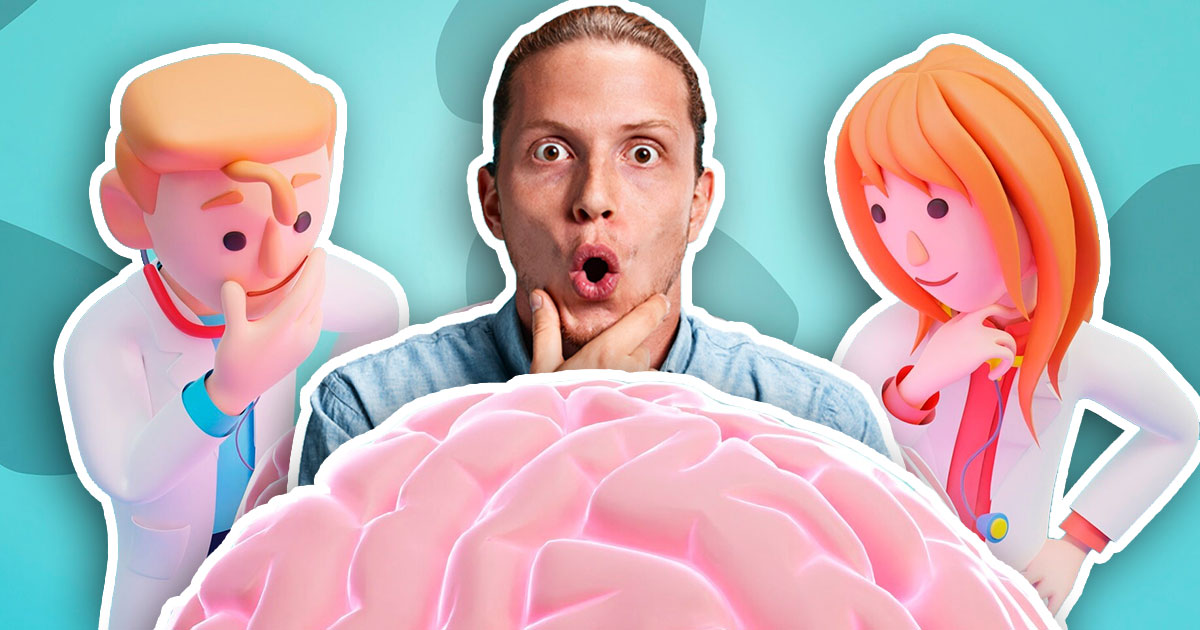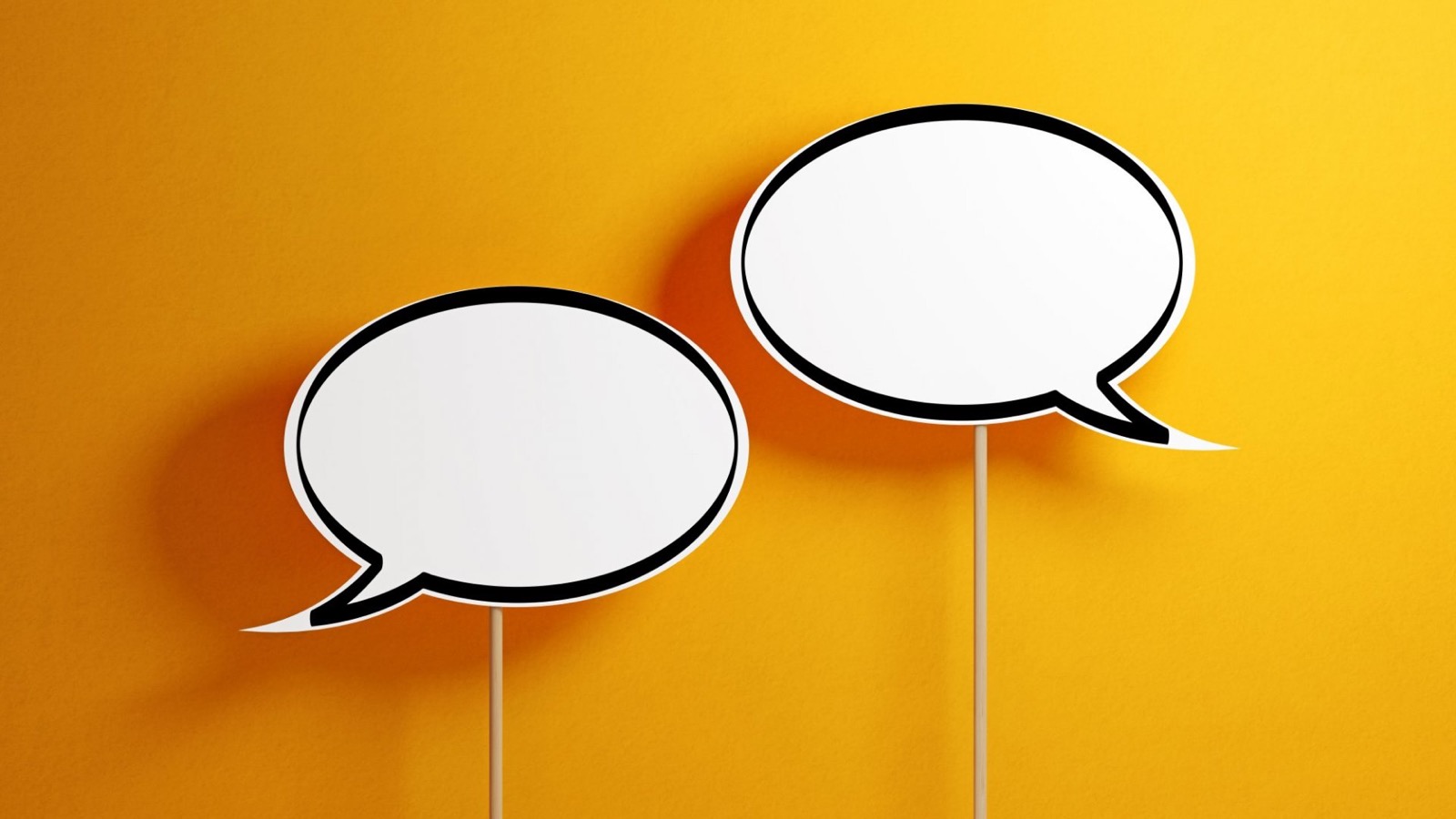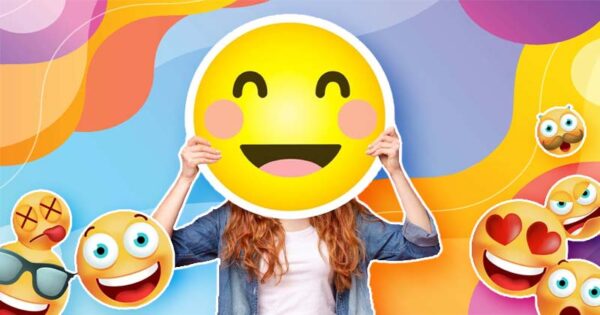
Multiple Intelligences Test: What's Your Dominant Intelligence?
In a world that thrives on diversity and individuality, it's essential to recognize that intelligence comes in many forms. While traditional IQ tests focus on logical-mathematical and linguistic intelligence, they often overlook other equally valuable cognitive abilities. Enter the realm of Multiple Intelligences, a groundbreaking concept that acknowledges the myriad ways in which humans excel and contribute to society.
Our Multiple Intelligences Test is designed to shed light on your unique cognitive strengths and weaknesses, helping you better understand your abilities and how you can leverage them in your daily life. Whether you're a teacher, a student, a parent, or simply someone interested in self-discovery, this quiz will open your eyes to the multifaceted nature of human intelligence.
The Theory of Multiple Intelligences
Before diving into the details of our quiz, it's essential to grasp the core concept of Multiple Intelligences. Developed by Howard Gardner in the 1980s, this theory challenges the traditional notion of intelligence as a singular, monolithic entity measured by standardized tests. Instead, it proposes that intelligence is a diverse spectrum of abilities, each with its unique characteristics and value.
Gardner identified seven primary intelligences, each representing a distinct facet of human cognitive capacity:
- Linguistic Intelligence
- The ability to use language effectively, whether through speaking, writing, or other forms of communication. Writers, poets, and orators often exhibit linguistic intelligence. - Logical-Mathematical Intelligence
- The capacity to reason, analyze, and solve problems. Scientists, mathematicians, and programmers typically excel in this intelligence. - Spatial Intelligence
- The knack for perceiving the world in three dimensions and making mental transformations. Artists, architects, and navigators rely on spatial intelligence. - Musical Intelligence
- The ability to create, understand, and appreciate rhythm, melody, and pitch. Musicians, composers, and music enthusiasts possess musical intelligence. - Bodily-Kinesthetic Intelligence
- Proficiency in physical activities and body control. Athletes, dancers, and actors often showcase bodily-kinesthetic intelligence. - Interpersonal Intelligence
- The skill of understanding and interacting effectively with others. Counselors, teachers, and community leaders excel in interpersonal intelligence. - Intrapersonal Intelligence
- Self-awareness, self-reflection, and a deep understanding of one's own emotions and motivations. Philosophers, psychologists, and introspective individuals embody intrapersonal intelligence. - Naturalistic Intelligence
- The ability to recognize and interpret various elements of nature, including plants, animals, and ecosystems. Those with this intelligence often excel in fields like botany, zoology, and ecology.
Understanding the theory of Multiple Intelligences lays the foundation for our quiz, which aims to help you identify which of these intelligences is most dominant in your case.
The Significance of Discovering Your Dominant Intelligence
Discovering your dominant intelligence isn't just a fun game or a simple curiosity. It has profound implications for various aspects of your life. Here are some key reasons why it matters:
- Tailored Learning: Knowing your dominant intelligence can help you tailor your learning approach. If you're linguistically intelligent, you might excel in language-based subjects. If you're musically intelligent, you might thrive in music classes.
- Career Choices: Your dominant intelligence can guide you toward career paths that align with your strengths. You're more likely to find satisfaction and success in a profession that utilizes your primary intelligence.
- Self-Understanding: Understanding your dominant intelligence can enhance self-awareness. It can explain why you excel in certain areas while struggling in others, leading to greater personal growth.
- Improved Relationships: Recognizing the dominant intelligences of others can lead to better interpersonal relationships. When you understand that someone has high interpersonal intelligence, you can adapt your communication style accordingly.
Take the Multiple Intelligences Test
Now that you have a solid understanding of Multiple Intelligences and their importance, it's time to embark on your journey of self-discovery. Our Multiple Intelligences Test is designed to assess your cognitive strengths and provide you with valuable insights into your dominant intelligence.
The beauty of this quiz is that it's not just about answering questions; it's about gaining a deeper understanding of yourself and your unique abilities. Each question has been carefully crafted to reveal different aspects of your intelligence. Your answers will be analyzed to determine which intelligence stands out as your dominant trait.
Whether you're a student wondering about your academic strengths, a teacher looking to customize your teaching methods, or an individual seeking to better understand yourself, this test is for you.
How the Test Works
Our Multiple Intelligences Test consists of a series of thought-provoking questions and scenarios. Your task is to choose the answer that best reflects your preferences and behaviors. Be honest with your responses, as the goal is to provide you with the most accurate results.
Once you complete the test, you'll receive a detailed analysis of your dominant intelligence. You'll gain insights into your cognitive strengths and areas where you might want to further develop your skills. Whether you discover that you have a linguistic, logical-mathematical, spatial, musical, bodily-kinesthetic, naturalistic, interpersonal, or intrapersonal dominant intelligence, you'll be equipped with knowledge that can help you make more informed decisions in your personal and professional life.
What's Your Type of Intelligence? Find Out Now
The journey to discovering your dominant intelligence begins with a simple click. Take our Multiple Intelligences Test now and unlock the door to a world of self-awareness and personal growth. Each question you answer brings you closer to understanding the unique blend of intelligences that make you who you are.
As you embark on this enlightening journey, remember that there's no 'right' or 'wrong' result. Every intelligence is valuable in its own way. Embrace your dominant intelligence and use it to your advantage. Your journey starts here, and the path is full of exciting revelations and self-discovery.
Enjoy Quizly? Upgrade to Premium for an ad-free experience and exclusive features.
Get PremiumMultiple Intelligences Test Questions
Let's begin! When solving a problem, what approach do you usually take?

I observe and understand patterns in nature.
I write or talk about it to clarify my thoughts.
I collaborate with others to find a solution.
I physically experiment with solutions or build something.
I imagine the problem in my mind to come up with a solution.
I reflect on my feelings and thoughts to make a decision.
I create a piece of music or art to express my ideas.
I analyze data and look for patterns.
What activity do you enjoy most in your free time?

Engaging in sports or physical activities
Socializing with friends and family
Exploring the outdoors and observing wildlife
Playing a musical instrument or composing music
Reflecting on my thoughts and emotions in solitude
Reading books or writing in a journal
Creating art or visualizing artistic designs
Solving puzzles or playing strategy games
How do you best remember information for a test or presentation?

I relate facts to the natural world and ecological systems.
I create charts, diagrams, or use logical structures.
I meditate or engage in self-reflection to internalize knowledge.
I read and rewrite my notes or use mnemonic devices.
I create mental images or mind maps to remember details.
I study with a group and discuss the material.
I physically act out concepts or use hands-on methods.
I associate information with music or rhythm.
What type of book would you choose to read for enjoyment?

A novel or a book of poetry
A biography or a book about human relationships
A book on science, math, or problem-solving
A self-help or philosophical book
An action-packed adventure story
A book about music, art, or creativity
A nature guide or a book on environmental conservation
A graphic novel or a visually engaging book
What do you find most engaging in a museum or art gallery?

Exhibits featuring natural specimens and ecological systems
Interactive exhibits and scientific displays
Social and cultural exhibits that explore human experiences
Musical performances or art with rhythm and flow
Sculptures, statues, or exhibits you can touch
Literary or historical exhibitions with written descriptions
Visually stunning and spatially complex artwork
Art that explores inner thoughts and emotions
What's your preferred way of learning a new skill?

I use visual aids and diagrams to understand concepts.
I use music or rhythm to help memorize steps.
I read books or take online courses to learn.
I learn by doing, through hands-on experience.
I prefer to learn with others or from mentors.
I reflect on my progress and adapt my learning techniques.
I observe and interact with nature while learning.
I follow a step-by-step guide or take an analytical approach.
How do you communicate your emotions to others?

I empathize and engage in deep conversations with others.
I convey my emotions through visual art and design.
I express my emotions through words and writing.
I physically show my emotions through gestures and body language.
I use logic and reason to explain my feelings.
I connect my emotions to the natural world and its cycles.
I create music or art to convey my emotional state.
I reflect on my feelings privately to understand them better.
What kind of movies or TV shows do you prefer to watch?

Philosophical or introspective films
Drama, documentaries, or thought-provoking films
Movies exploring human relationships and social issues
Visually stunning and artistic films
Action-packed films with physical challenges
Mystery, detective stories, or science fiction
Musical performances or movies with a strong musical element
Nature documentaries or programs about wildlife
When you have a problem, how do you typically brainstorm solutions?

I visualize different scenarios and solutions in my mind.
I discuss the problem with friends and consider their insights.
I seek inspiration from nature and its patterns.
I talk to friends or write in a journal to gain clarity.
I physically experiment with different approaches.
I play a musical instrument or listen to music to think.
I reflect on my thoughts and emotions to make a decision.
I create a list of pros and cons to make a decision.
What do you enjoy most about travel and exploring new places?

Engaging in physical activities and trying new sports
Exploring the unique ecosystems and wildlife of the region
Learning about the history and culture of a place
Capturing the beauty and aesthetics of the places I visit
Appreciating local music and artistic expressions
Reflecting on my personal growth and experiences
Interacting with locals and learning new languages
Building connections with people from different backgrounds
Here's the halfway point of the quiz! How do you usually express appreciation or gratitude?

I physically show my gratitude through hugs or actions.
I connect with people, share my gratitude, and foster relationships.
I give thanks to the natural world and its beauty.
I create art that symbolizes appreciation and thanks.
I write heartfelt letters or verbally express my thanks.
I give thoughtful gifts or perform acts of service.
I compose music or songs to convey my appreciation.
I reflect on my feelings of gratitude and acknowledge them internally.
How do you prefer to teach or explain something to others?

I use words, write explanations, and provide examples.
I encourage self-discovery and personal reflection in learning.
I use visual aids and designs to illustrate concepts.
I relate the subject matter to the natural world and its principles.
I incorporate music, rhythm, or mnemonic devices into teaching.
I demonstrate the process through physical actions.
I engage in discussions and encourage group learning.
I provide step-by-step instructions and use logic.
What kind of job or profession do you find most appealing?

Writer, journalist, or language translator
Athlete, dancer, or physical therapist
Scientist, engineer, or mathematician
Environmental scientist, park ranger, or wildlife biologist
Architect, designer, or artist
Musician, composer, or sound engineer
Counselor, therapist, or social worker
Psychologist, philosopher, or life coach
How do you prefer to organize your thoughts and ideas when planning a project?

I use physical materials like sticky notes or a whiteboard.
I draw connections and ideas from nature and its patterns.
I collaborate with others to gather diverse perspectives.
I introspect and reflect in solitude to organize my thoughts.
I create a detailed outline or flowchart.
I create visual diagrams and mind maps to plan my project.
I find inspiration in music or rhythm while brainstorming.
I write down my thoughts in a journal or document.
How do you typically prepare for an important presentation or speech?

I practice physical gestures and body language.
I craft a compelling narrative and use eloquent language.
I spend time reflecting on my own thoughts and emotions.
I relate the topic to natural phenomena and ecological systems.
I incorporate music or rhythm into my presentation for impact.
I use visual aids and imagery to enhance the presentation.
I focus on data, statistics, and logical arguments.
I engage the audience and build connections during the speech.
What is your preferred method of self-expression?

I use words, writing, and literary forms to convey my thoughts.
I physically express myself through movement or sports.
I use visual arts, design, or fashion for self-expression.
I introspect and explore my inner world for self-expression.
I express myself through data, facts, and research.
I create and appreciate music or other rhythmic forms of expression.
I connect with others and build relationships to express myself.
I find inspiration in nature and convey it through art or photography.
When you encounter a new concept or idea, how do you prefer to understand it?

I physically interact with it to gain a hands-on understanding.
I reflect on it personally and explore my own insights.
I engage with others, share perspectives, and learn collectively.
I create visual models and diagrams to grasp the concept.
I read about it, discuss it, and explore its linguistic aspects.
I connect it with music or rhythm to remember and appreciate it.
I analyze it logically and break it down into components.
I relate it to natural systems and ecological principles.
You're nearing the end! How do you approach problem-solving in a group or team setting?

I introspect and provide insights based on personal reflections.
I communicate effectively and articulate ideas in discussions.
I create visual aids and diagrams to facilitate group understanding.
I relate the problem to natural patterns and ecosystems for solutions.
I contribute by providing logical analysis and solutions.
I connect with team members, build trust, and foster collaboration.
I use music and rhythm to enhance the team's problem-solving process.
I take an active role in physical tasks and hands-on solutions.
You're almost at the end! What type of conversation or communication do you enjoy the most?

Engaging in meaningful conversations, storytelling, or debates
Conversations that involve physical activities and movement
Intellectual and analytical discussions and debates
Deep introspective conversations and self-reflection
Musical conversations or discussions with rhythmic elements
Talks about nature, wildlife, and ecological discussions
Visual presentations and discussions about design and aesthetics
Conversations that build and nurture interpersonal relationships
You're at the end of the quiz! if you could have any of the following superpowers, which one would you choose?

The ability to communicate with and understand the language of animals and plants
The gift of creating beautiful music and rhythm with a mere thought
Mastery over the visual arts, with the ability to create stunning imagery and designs.
Empathy that allows you to connect deeply with others and understand their emotions
Superhuman strength and agility to excel in physical activities and sports
Innate self-awareness and the power to explore your own inner thoughts and emotions
The power to speak and understand all languages fluently
The ability to instantly calculate complex equations and solve any mathematical problem







12 Comments
You got: Linguistic Intelligence!
Your gift lies in your way with words. You have a rich vocabulary and a deep appreciation for the nuances of language. Expressing ideas through writing and spoken word comes naturally to you. You excel in storytelling, public speaking, and any profession that involves written or verbal expression. Your linguistic intelligence is a valuable asset in careers like writing, journalism, law, and translation.
And I have a few stories where I, subconsciously, translated languages without realizing I’d done it. In in-person conversations.😅
Spatial Inteligence? Umm no thanks bud
LOL
I got Interpersonal intelligence.
What did you get?
Just curious.
Bodily-Kinesthetic Intelligence
what does that even MEAN?!
and I don’t like exercising….
Maybe it could also mean that you give your brain a good workout…🤔
I don’t really know either.
If someone is an athlete, I guess that could be expressive but I don’t know how there’s a relationship to intellect
didn’t take it yet.
Linguistic intelligence. Well, I didn’t expect that….and it doesn’t really fit me much.
Logical-Mathematical Intelligence!
You possess a remarkable talent for analytical and problem-solving tasks. Your ability to identify patterns, make logical deductions, and work with abstract concepts sets you apart. Challenges that demand critical thinking, data analysis, and mathematical reasoning are where you shine. You find satisfaction in solving complex puzzles and equations and thrive in fields like science, engineering, computer programming, and mathematics.
not really the math part…
Mathematical intelligence is me with Nerd Mode on. . .
this quiz soo hard to answer
Linguistic intelligence. Exactly as I thought. I actually speak 6 languages.